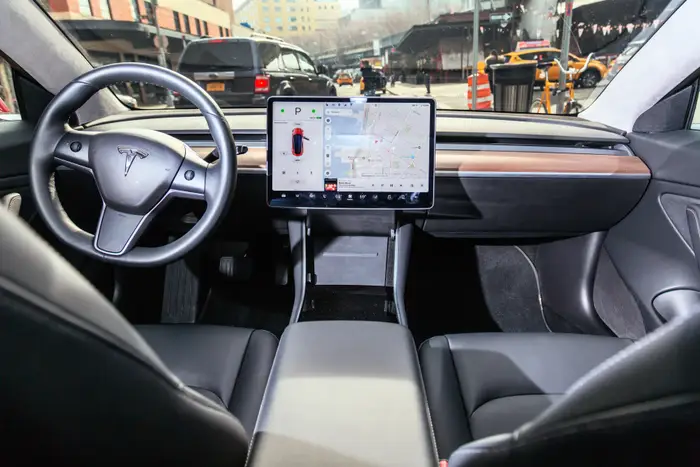In 2023, the electric vehicle (EV) market is not merely growing—it’s evolving at breathtaking speed. According to Bloomberg Green, global EV sales are projected to exceed 10 million units this year, a testament to the shifting tides in automotive preferences. But what’s truly propelling this transformation? The answer lies in the fusion of AI and autonomous technology, two groundbreaking innovations that are redefining mobility. In this article, we will explore how AI-enhanced features and self-driving capabilities are revolutionizing electric vehicles, making them smarter, safer, and more efficient.
The Role of AI in Electric Vehicles
AI-Powered Features Enhancing EV Performance
Artificial Intelligence is the brain behind the brawn of modern electric vehicles. By integrating AI, manufacturers are able to offer:
- Predictive Maintenance: AI algorithms can predict and alert drivers about potential mechanical failures, reducing downtime and extending vehicle lifespan.
- Energy Management: AI optimizes battery usage, ensuring maximum range efficiency. For instance, Tesla’s AI software actively monitors driving patterns to adjust energy consumption.
- Enhanced Safety: AI-driven safety features, such as adaptive cruise control and automatic emergency braking, are becoming standard. According to TechCrunch, these enhancements have significantly reduced accidents by up to 30%.
AI in Battery Technology
Battery efficiency remains a critical factor for EV adoption. Innovations in AI are making significant strides in this area:
- Smart Charging: AI systems can determine the best times to charge EVs based on grid demand and energy prices, saving costs and promoting sustainable energy use.
- Battery Health Monitoring: With AI, real-time data on battery performance can be analyzed to prevent degradation, as reported by PV Magazine. This technology extends battery life and enhances overall EV reliability.
Autonomous Technology: The Next Frontier
Levels of Autonomy in EVs
Autonomous technology is categorized into five levels, with Level 5 representing full autonomy without human intervention. While most current models, like those from Nissan and Hyundai, operate at Level 2 or 3, the industry is rapidly advancing toward higher autonomy:
- Level 1: Driver Assistance – Basic support like lane-keeping.
- Level 2: Partial Automation – Tesla’s Autopilot enables combined functions such as steering and acceleration.
- Level 3: Conditional Automation – Vehicles can handle certain tasks but require human intervention for complex scenarios.
- Level 4: High Automation – Capable of completing trips without human input in specific conditions.
- Level 5: Full Automation – No human attention is needed at any time, anywhere.
Current Developments in Self-Driving EVs
Brands like Rivian and Lucid Motors are at the forefront of autonomous tech. Here are some key developments:
- Rivian’s Advanced Driver Assistance Systems (ADAS): Rivian’s vehicles feature AI-enhanced sensors that map surroundings with precision, providing superior obstacle detection.
- Lucid Motors’ DreamDrive: This system combines 32 sensors, cameras, and radars to offer a seamless driving experience, covering over 1.3 million miles in testing, as noted by AutoCar.
Challenges and Opportunities
While the potential of autonomous EVs is immense, challenges such as regulatory approvals, technology costs, and public trust remain. However, the opportunities are equally significant:
- Reduced Traffic Congestion: Autonomous EVs can optimize traffic flow, reducing congestion and emissions.
- Increased Accessibility: They offer mobility solutions for those unable to drive, expanding accessibility.
Practical Insights for EV Enthusiasts
How to Compare AI and Autonomous Features in EVs
When considering a new EV, it’s crucial to assess the AI and autonomous features:
- Safety Features: Prioritize vehicles with advanced AI-driven safety measures.
- Autonomy Level: Choose a model with the level of autonomy that suits your comfort and needs.
- Software Updates: Opt for brands like Tesla that offer over-the-air updates to improve vehicle performance continuously.
Where to Buy Your Next AI-Driven EV
The best places to purchase AI-enhanced EVs include:
- Direct from Manufacturers: Brands like Tesla and Rivian sell directly to consumers, ensuring you access the latest models and technologies.
- Certified Dealerships: Look for authorized dealers with expertise in electric vehicles to receive informed guidance and support.
Conclusion: Steering Towards an Autonomous Future
The integration of AI and autonomous technology is undeniably steering the EV revolution into an exciting new era. As we continue to embrace these advancements, electric vehicles are becoming not only more efficient and safer but also more accessible and intelligent. The future where every vehicle is autonomous might still be on the horizon, but the journey there is filled with remarkable innovations that promise to redefine how we perceive mobility.
Are you ready to take the leap into this electrifying world? Share your thoughts or questions in the comments below. And as we look ahead, keep an eye on emerging trends—because the next big breakthrough in EV technology could be just around the corner.

